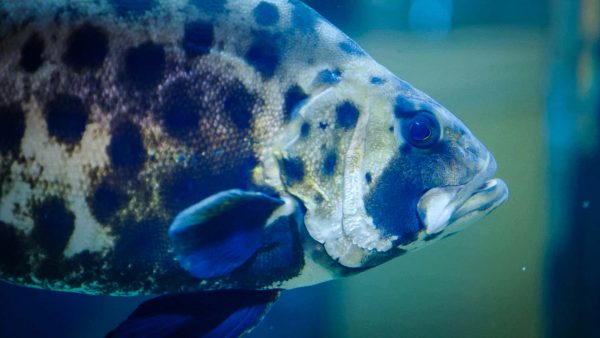River Definition
A river is a freshwater body on Earth's surface. For example, much of the water that people use comes from rivers.
View Lesson on Water Quality & Distribution
Become a member to get full access to our entire library of learning videos, reading material, quiz games, simple DIY activities & more.
Become a member to get full access to our entire library of learning videos, quiz games, & more.
Plans & Pricingto watch this full video.

Access All Videos
and Lessons, No Limits.
Access All Videos

No credit card required,
takes 7 sec to signup.
No card required

Ready-to-go lessons
that save you time.
Ready-to-go lessons
If you are on a school computer or network, ask your tech person to whitelist these URLs:
*.wistia.com, fast.wistia.com, fast.wistia.net, embedwistia-a.akamaihd.net
Sometimes a simple refresh solves this issue. If you need further help, contact us.
Water Quality & Distribution
Fun Facts
- Rivers are part of Earth's 3% freshwater.
- Agricultural runoff can contaminate rivers with fertilizers and pollutants.
- Rivers can end up with polluted runoff from cities after it rains.
Why Do We Need To Know About River
Learning about rivers helps you understand how nature works and why it’s important to keep water clean. Plants and animals need clean water to live, which shows how important rivers are for all kinds of life. Also, since people can pollute water even from far away, we need to take care of our rivers.
Jobs in waste management, protecting the environment, cleaning water, and environmental engineering help keep rivers clean. These jobs work on stopping pollution, making sure water is clean, and fixing damaged nature areas. They help by reducing harmful waste from factories, taking care of dirty water, and cleaning up beaches, which is really important for the health of rivers and our planet.
Frequently Asked Questions
Check out the Full Lesson on Water Quality & Distribution
In this lesson, we learn that:
- 97 percent of Earth's water is in oceans.
- Plants and animals depend on clean water to survive.
- Humans can negatively affect water quality even if they live far away from it.
Related Topics
- Amplitude Definition
- Atom Definition
- Biochemistry Definition
- Biodiversity Definition
- Compound Definition
- Conductor Definition
- Convergent Boundary Definition
- Definition Of Engineering
- Definition Of Experiment
- Dichotomous Key Definition
- Distillation Definition
- Electromagnet Definition
- Electron Definition
- Force Definition
- Fossil Record Definition
- Frequency Definition
- Gravity Definition
- Groundwater Definition
- Kuiper Belt Definition
- Latitude Definition
- Limited Resource Definition
- Motion Definition
- Newton’s 3rd Law Of Motion Definition
- Nucleus Definition
- Period Definition
- Phases Of The Moon Definition
- Plant Definition
- Plant Growth Definition
- Proton Definition
- Reproduction Definition
- Respiratory System Definition
- River Definition
- Sediment Filter Definition
- Soil Erosion Definition
- Solution Definition
- Star Definition
- Sun Definition
- Symbiosis Definition
- Thermal Energy Definition
- Tissue Definition
- Transform Boundary Definition
- Vibrating Definition
- Water Distribution Definition
- Water Quality Definition
- Watershed Definition
- Wave Definition
- Weathering Definition
- Wedge Definition
Start a Free Trial Today. Get a $5 Amazon Gift Card!
Teachers! Start a free trial & we'll send your gift card within 1 day. Only cards left. Try it now.
Select Grade
Select Subject
This email is associated with a Science Kit subscription. Kit subscriptions are managed on this separate page: Manage Subscription

-
Download InvoiceScience & Math$/yr
-
Download InvoiceScience Only$/yr

access all lessons
• No credit card required •
"My students loved the videos. I started the video subscription in May and used them as a review before the state test, which I know contributed to 100% of my class passing the state test."
Rhonda Fox 4th Grade Teacher, Ocala, Florida
• No credit card required •
"My students loved the videos. I started the video subscription in May and used them as a review before the state test, which I know contributed to 100% of my class passing the state test."
Rhonda Fox 4th Grade Teacher, Ocala, Florida
• No credit card required •
Already a member? Sign In
* no credit card required *

* no credit card required *
* no credit card required *


no credit card required
Skip, I will use a 3 day free trial
Enjoy your free 30 days trial
-
Unlimited access to our full library
of videos & lessons for grades K-5. -
You won’t be billed unless you keep your
account open past your 14-day free trial. -
You can cancel anytime in 1 click on the
manage account page or by emailing us.
-
Unlimited access to our full library of videos & lessons for grades K-5.
-
You won't be billed unless you keep your account open past 14 days.
-
You can cancel anytime in 1-click on the manage account page.
Cancel anytime in 1-click on the manage account page before the trial ends and you won't be charged.
Otherwise you will pay just $10 CAD/month for the service as long as your account is open.
Cancel anytime on the manage account page in 1-click and you won't be charged.
Otherwise you will pay $10 CAD/month for the service as long as your account is open.
We just sent you a confirmation email. Enjoy!
DoneWe use cookies to make your experience with this site better. By using this site you agree to our use of cookies. Click "Decline" to delete and block any non-essential cookies for this site on this specific property, device, and browser. Please read our privacy policy for more information on the cookies we use.Learn More
We use cookies to improve your experience. By using this site, you agree to our use of cookies. Click "Decline" to block non-essential cookies. See our privacy policy for details.Learn More



























































































































